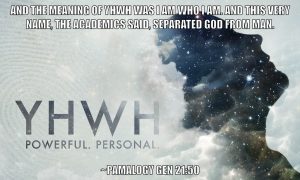GENESIS
XXI
waves of understanding
1And there were waves of understanding over time in every age and from place to place. 2And groups and schools of thought arose over periods of time as sentiments became popular. 3And God was revealed to humankind one way and then another as people reassessed their understanding. 4And the Hebrew Bible and the Christian New Testament and the writings of every religion bore witness to this fact. 5And those who perceived God as speaking through one set of Scriptures or another were among many learning and considering. 6And those who believed in the inerrancy of the writings they had received were called fundamentalists. 7And fundamentalists had their own schools of thought among the many. 8For they were divided in every age.

canons of scripture
9Thus the Ebionites had their canon and later the Muslims had theirs, while the Catholics and Orthodox had one set of Scriptures and the Reformers accepted as divinely inspired a fewer number of books. 10And the Jews also ultimately accepted even fewer books in four sections – the Torah, the Prophecies, the History and the Writings, which collectively were called the TNKH. 11And the Gnostics had texts they preferred, as well. 12And Marcion wrote his own Bible, rejecting the Jewish texts as belonging to another God besides the Son. 13And the Gospel of Thomas was a collection of sayings attributed to Jesus. 14And some of the sayings may have been authentic though they were not accepted as Scripture by those called Orthodox.
waves of the documentary hypothesis
15And before the third Millennium CE there were among them academics who described the Hebrew Scriptures as evolving in their construction over a longer period of time than religious fundamentalists would consider. 16For the fundamentalists believed that Moses wrote the first five books of the Bible, which were called the Torah or Law and also called the Penteteuch – Genesis, Exodus, Leviticus, Numbers and Deuteronomy. 17And the academics embraced with some variety what came to be called the documentary hypothesis.
five waves
18And the documentary hypothesis described waves of understanding, which were what the academics called traditions. 19And there were five such waves the academics described – the Yahwist, Elohist, Priestly and Deuteronomists. 20And there were two waves of Deuteronomists covering different periods of time, many academics said. 21And they believed there were also those who collected the writings and added statements to make the writings read like a single story. 22And these they called redactors. 23And they gave each wave of writers symbols J,E,P,D1,D2 and R. 24And there were several Rs because revision of the text was thought to have occurred periodically as it was collected and copied.
Yahwist wave
25And the first wave they called the Yahwist tradition. 26For the writer or writers preferred to call God YHWH. 27And this they called J because the Germans came up with the theory and pronounced J like Y. 28And the Yahwist or Yahwists were thought to be the earliest writers of the Torah, writing at the beginning of the Davidic dynasty, beginning around the time of David’s son Solomon’s reign, around 950 BCE, though some argued for later dates.
29And the Yahwists were thought to have written about half of the book of Genesis beginning with chapter two verse four – that is, what they called the second creation account and most of the other stories. 30And the Yahwists were also thought to have written much of the book of Exodus, though which parts were more disputed.
31And in certain passages thought to have been added centuries later there were those which also preferred the title YHWH. 32Therefore the academics described this tradition in terms of schools of thought rather than single writers. 33And the academics regarded Moses as a legendary figure, possibly not historical, rather than the author. 34For most of the academics what mattered was not whether Moses was a real person who performed real miracles and wrote the Torah, but what mattered was why the Yahwists wrote what they did. 35For they believed the actual writers had something of importance to say to the people of their own day.
36And namely, the Yahwists, the academics largely agreed, hoped to emphasize the need to worship one God, YHWH, exclusively and to obey him. 37And according to the Yahwists, they said, God was separated from man and man was corrupt, having come from the soil. 38And man was disobedient, therefore he had to return to the soil with toil and in the dust of death. 39And so much the more so when he shed the blood of his brother. 40Therefore man could not see the face of God and an angel with a flaming sword guarded the gate back to Paradise. 41And so also the land needed to be washed over with a flood. 42For it was a defilement of ordained hierarchy for the sons of the gods to have relations with the daughters of men.
43And with this type of an unapproachable deity, the academics taught that the worship of one God only would serve the kings of Judah, who built a stationary temple in Jerusalem. 44For the academics supposed that their rulers hoped to receive tithes and offerings and loyal devotion from the people who worked the land in the new nation’s capitol city.
45And they taught that Yahwhism had risen from among the people when they had sought their own king and rejected the gods of the wealthy, who had often oppressed them rather than imposed without prior support. 46And this was convenient. 47For the Yahwhists saw the one God as human-like, doing things like walking in the garden mist, they said. 48And the human-like descriptions of YHWH, the academics called Yahwhist anthropomorphism. 49And YHWH was a God of thunder and fire, they said, and the people of the land were taught to be fearful of him.
50And the meaning of YHWH was I Am who I Am. 50bAnd this very name, the academics said, separated God from man. 51For man was not to control God but God was unknowable and would reveal himself however he wished. 52And such a God stood in contrast to the other Gods of the land, which could be made with clay or wood and were used for obtaining favors.
<< PGen Ch20<< || PGen Index|| >>PGen Ch22>>
